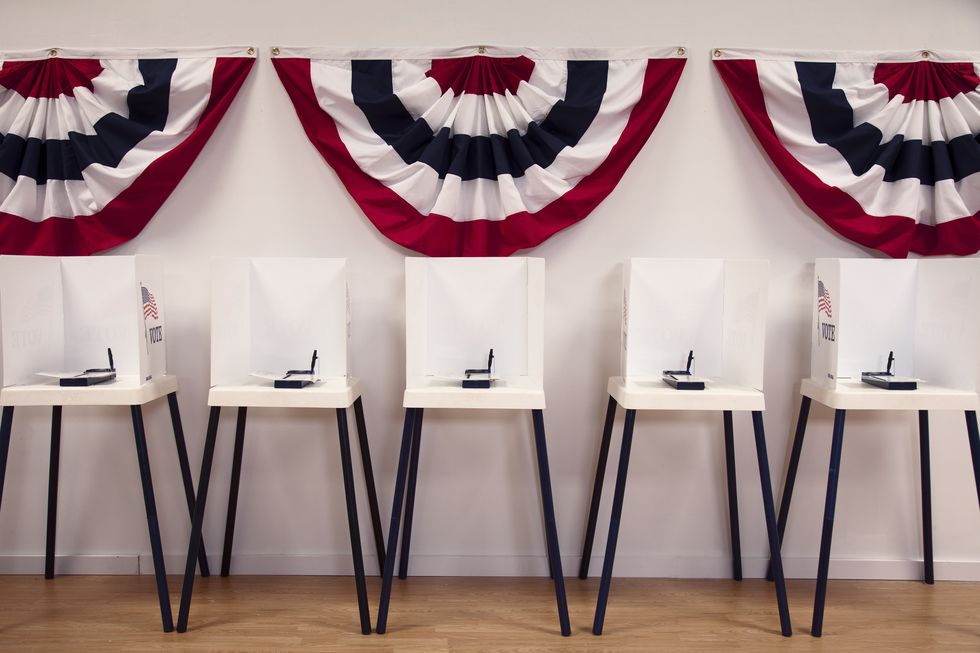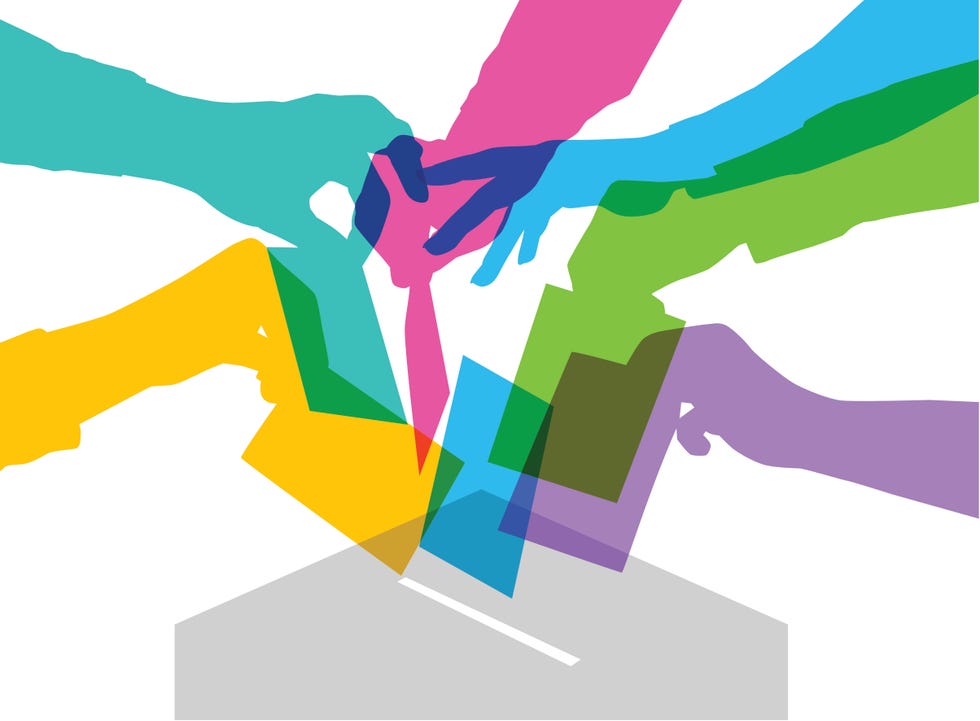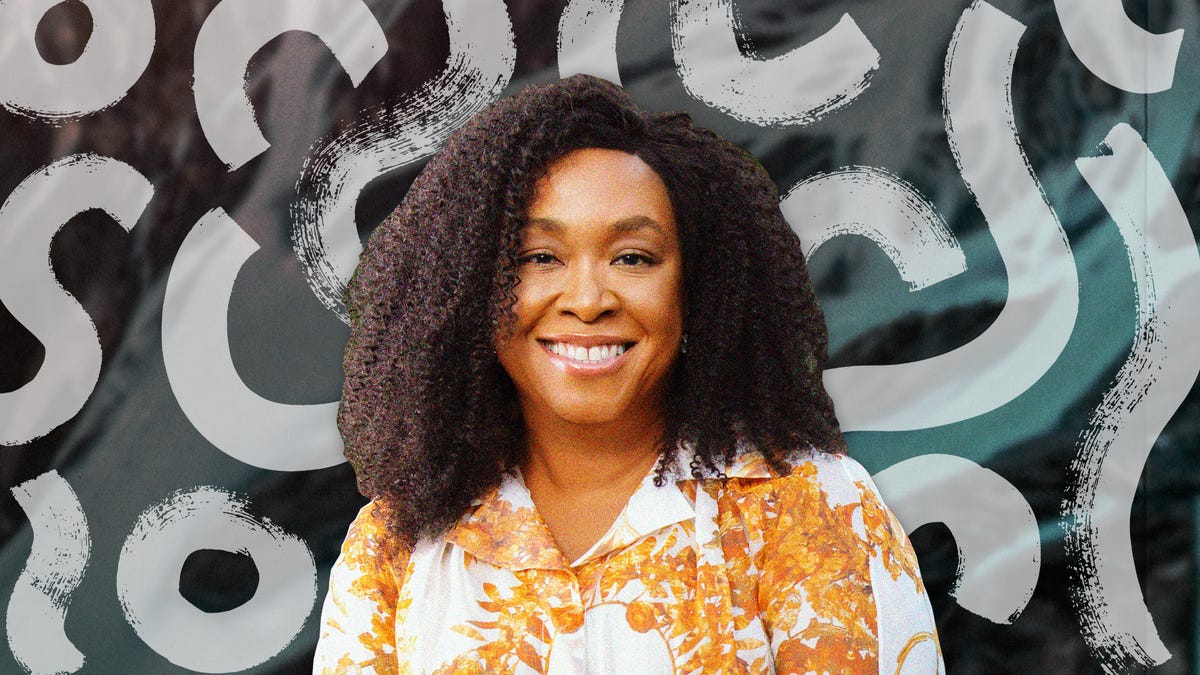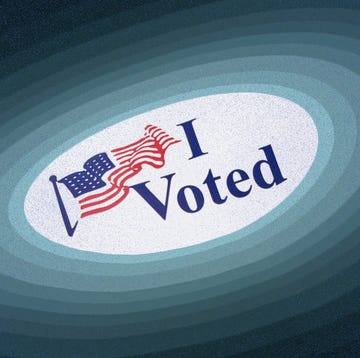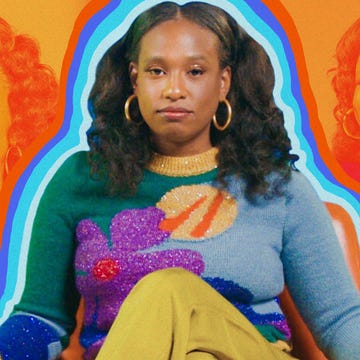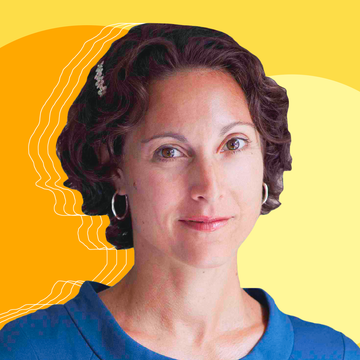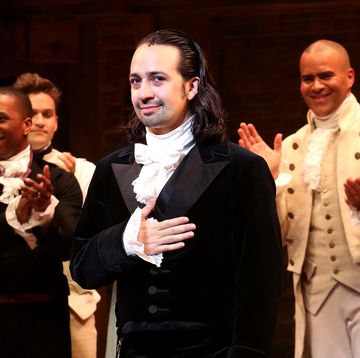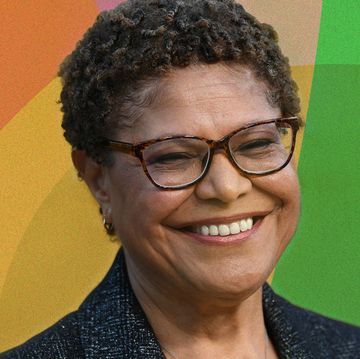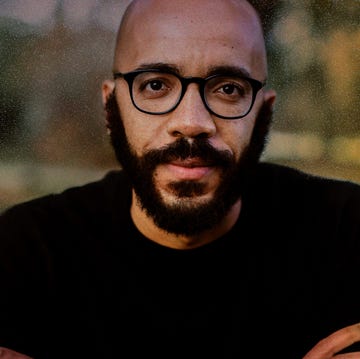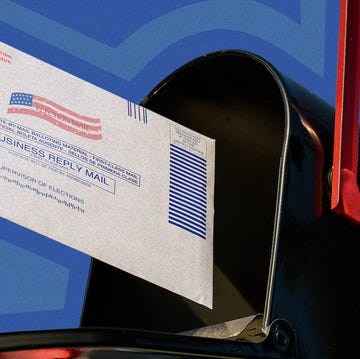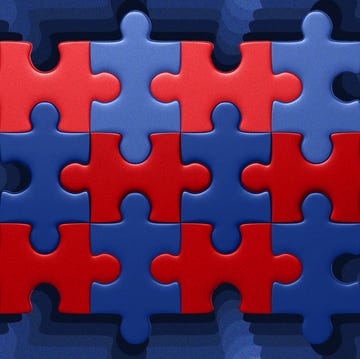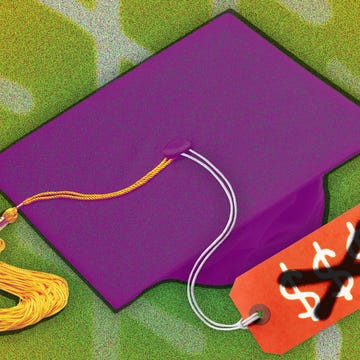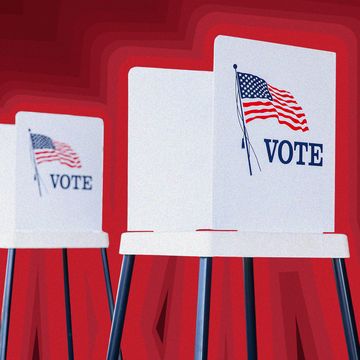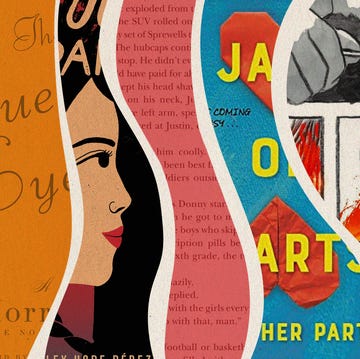I’m 42 years old and should — in theory — have nearly a quarter-century’s worth of votes behind me. But the truth is I’ve only been an active voter for the past 14 years.
I grew up in a home where politics and voting were not discussed. The topic simply didn’t exist around our Brooklyn, New York, dinner table. I was born to working-class teenage parents with survival (and not much else) on their minds. My father worked night shifts for the New York Metropolitan Transportation Authority — when he came home at 6 in the morning, he’d sleep for much of the day. My mother worked part-time as a receptionist in a doctor’s office until my mid-teens. Our family of four lived in a small two-bedroom apartment. Worries about living paycheck to paycheck took precedence over parsing out which politician was trustworthy enough to receive my parents’ endorsement.
I cannot remember bearing witness as a child to even one politically motivated discussion that took place in our household.
Almost every generation of my family is defined by economic hardship and survival. Some might argue that I should have been raised with an eye toward politics because of our struggles — not in spite of them. I agree that it would have made sense for the adults in my world to vote for politicians who cared about the poor and working class, and to pass their commitments down to their children. After all, it’s the poor and working class who stand to gain (and lose) the most with each passing election. But it’s clear to me now that for some families, civic engagement seems like a luxury for those with the headspace and time to devote it.
A recent study in The Journals of Gerontology showed that when it comes to voting, “in addition to physical and cognitive limitations, emotional difficulties and depression reduce turnout, particularly among the least wealthy.” The authors point out that whether one becomes a “habitual voter” is determined by “past political experiences.” It makes sense: When you’re not worried about where your next meal is coming from, or if your boss will give you time off to vote on Election Day, it’s feasible that a person would be willing to devote their energy to studying candidate profiles, watching debates, and making plans to head to the polls.
I was 8 years old and in the third grade the first time I learned about presidential elections. Our teacher passed out copies of a classroom publication for children called the Weekly Reader. The cover featured headshots of George H.W. Bush and Michael Dukakis, and our teacher asked us to vote for one of the candidates. I remember feeling as though Dukakis had a friendlier face than Bush, and so I cast my vote accordingly. It would be my first and last vote until I turned 28 years old, the year that Barack Obama was elected president for the first time. I was one of the first to enter my Midwestern polling center that morning in the fall of 2008, confused and intimidated by the equipment and chaos. Most of all, I was ashamed that my only experience as an active citizen prior to that point was casting a pretend vote in a now-defunct children’s magazine.
My grandfather died several years ago at 85 years old. One of our last conversations was a mildly political one. He lived in Florida and hated Donald Trump. I remember how he said, out of the blue, “Trump needs to shut his mouth.” I can’t remember exactly which Trumpism inspired my grandfather’s ire, but I was surprised that he had an opinion. It was the first time I’d ever heard my grandfather share any comment about a politician.
I nervously asked whether he’d voted in the 2016 election. I didn’t know what he was going to say. Despite my apolitical upbringing, I’m now a hotheaded Democrat and not one to back down on extreme right-wing antagonism, no matter how close I might be to the offending family member or friend. I’ve had several friendships end over politics, and I don’t feel a crumb of remorse about this. My mantra is now this: You are the vote you cast. No exceptions.
In the end, I’m glad I asked my grandfather that question. It was then that I learned exactly how far back my family’s lack of political participation went.
My grandfather told me he hadn’t, in his entire life, cast a single vote. “Christina, I never voted because I didn’t understand,” he said. He didn’t understand the candidates or the process by which they came to power. My grandfather was a manual laborer and barely literate — I assume that the very notion of reading and making sense of a ballot intimidated him.
He could resurrect a dead engine by merely digging under the hood of any car for just a couple of minutes, but he rarely spelled my (or his own) name correctly on cards he’d send me for birthdays and holidays. His lack of political literacy carried over into the family he created, and I was no exception. It’s true that our lives appeared unchanged with each passing election. Across time and presidential terms, my parents complained about the same things: bills and taxes. And Republican or Democrat, whoever was in office appeared to just keep things the same.
So, I had come into adulthood college educated but smugly refused to believe that politics and voting mattered; I was unmoved by the pleas from my more politically active friends to get involved with the world around me. Who in their right mind, I thought, devotes time and energy to a system impervious to real change?
When I began graduate school in the summer of 2008, however, I was surrounded by people — mostly women — who were political to their core. Many of my friends and colleagues had been voting for as long as they were legally allowed to do so. They shared stories of their involvement with protests, some of which resulted in their arrests. My new community viewed civic engagement as a responsibility to continue the foundational work that had been trailblazed for them, and for me. The fact that I was a single and child-free woman, in my late 20s and embarking on a graduate degree, suddenly held more weight. I was there not just because of the women before me who made it possible, such as Ruth Bader Ginsburg, who fought for equity and justice in educational and professional spaces, but also because of the women who continue to make it possible today.
Finally, my complacency no longer suited me, and the subtext became clear: Who was I to sit on the sidelines? Suddenly, my apolitical upbringing angered me, and I began to view our lack of politics as a disastrous missed opportunity to give back to the world and protect people who’d grown up as I had. My mantra has since evolved: You are a product of the vote you don’t cast.
After voting for Obama in 2008, I sent a text to everyone I knew: “Yes we can,” it said. When he was elected president that same night, I felt a sense of pride I’d not known before. It felt like the entire world had shifted into something more palatable — even desirable.
When I saw in the coming months and years after my first vote exactly how Obama’s own Congress was poised to obstruct each and every one of his efforts, the reasons for his popular vote, for my vote, and the power of midterm elections became clear to me.
Only then did I understand that consistent, ongoing civic participation is necessary for true change. To my mind, often we’re motivated enough to vote for president, but complacency — the same complacency I’m guilty of — makes people lackadaisical about voting in local and state elections and sorting through down-ballot races, which can be and often are just as important to our lives. For instance, when Democrats don’t vote, we open the door to extreme, fringe, and dangerous views — often about women, race, gender, education, and other top issues — that typically come from the radical right.
Obama’s first presidential campaign marked the beginning of my civic engagement. But his inability to effect change, followed by Trump’s disastrous and world-altering term, is why I have voted in almost every local, state, and federal election since then. For example, the emergence of rabid QAnon-aligned school board candidates is only an issue because of the elections that have made their existence possible. It’s becoming true that no election is insignificant, whether it’s for a school board seat or the Oval Office.
Now, studying candidates, platforms, and issues has become an addiction, and I’m ashamed of how long it’s taken me to exercise my rights and responsibilities. I do not have children, but I vote in my local school board elections, particularly given the current climate of school politics and those seeking positions of power with the goal of doing real damage to schools, students, their families, and their teachers. I see it as my duty to keep such people as far away from positions of power as possible.
I now teach education courses at the college level, and it’s hard to gauge whether my students are politically interested. As their teacher, I’m expected to remain neutral. I walk the line between encouraging them to become active citizens and running the risk of imposing my own politics onto their developing perspectives. I rely on educational issues to make my point for me: My students are future teachers. There’s a lot at stake. Their political engagement can make the difference in how effective they are at their jobs. If they’re not voting on issues important to them and their schools, someone else will vote for them. I’m hoping to teach them that local school board elections are — in their own way — as consequential as elections that occur at the state and federal levels. It’s all related; it’s all connected. One need only trace the politics of the last six years to understand how. Extremists who are elected to hold local seats can, in theory, become president someday. All political careers begin somewhere. I’m hoping to show my students just how much the quality of their lives is a reflection of their civic engagement.
Perhaps the beauty of growing up in an apolitical household is that I eventually formed my own opinions, versus whatever opinions my parents might have demanded of me. Today, I hope to have many years of civic engagement in front of me. I hope to effect some real change.
Christina Wyman is a writer and teacher living in Michigan. Her debut novel, Jawbreaker, is forthcoming from Farrar, Straus and Giroux in 2023 and is a middle-grade book that follows a seventh grader with a craniofacial anomaly that’s caught the attention of her school bullies — including her own sister. Wyman can be found on Twitter @CBWymanWriter.
Get Shondaland directly in your inbox: SUBSCRIBE TODAY

